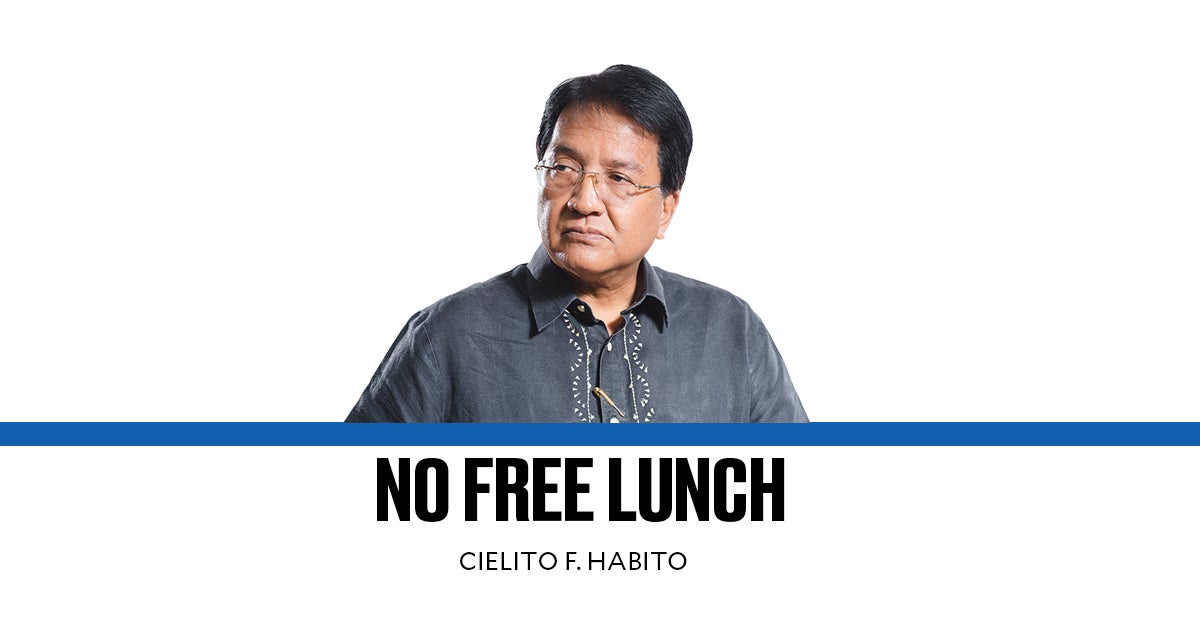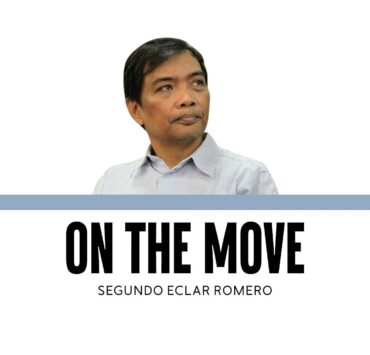Brushes with corruption

I’m not ashamed to tell friends about the two times Meralco cut power to our house for lack of cash to pay for it, in the year after I left the National Economic and Development Authority (Neda) in 1998, having completed eight years there. Our still young children then were traumatized by the darkness in our home even as the neighbors’ lights were on, and they still remember those incidents to this day. I had to swallow my pride and resort to borrowing money from a friend then to have our power restored.
That year was particularly hard as I left the government with no savings; the P200,000 I had in my bank account when I first joined Neda had been depleted. I had counted on my early retirement pension lump sum to tide us over until I had a regular income again, but a couple of nuisance cases that included my name—filed with (and later thrown out by) the Ombudsman—delayed its release by nearly a year. Knowing my situation then, a relative called me stupid (gago) to my face, chiding me for missing the chance to “make hay” while in the Cabinet. But such never entered my mind. On my very first day in office as Neda secretary on July 1, 1992, a long-lost friend showed up at my office unannounced, bearing a private message about a controversial telecoms project being closely evaluated by Neda at the time. He intimated that if we approve the project, “there’s something good in it for us.” He even had the temerity to ask me to endorse him to head the Philippine National Railways, which was dormant and not even operating then. Feeling insulted, I ushered him out of my office, and never heard from him again (that project failed to pass Neda’s scrutiny, by the way).
My next brush with corruption came when Neda, on instructions of then President Fidel Ramos, sought official endorsement from Congress for the newly crafted Medium Term Philippine Development Plan (MTPDP) 1993-1998. With my top officials in tow, I met with the rules committee of the House of Representatives, which lined up the agenda for plenary deliberations in the Lower House. It turned out to be a stomach-turning experience for me. As if their endorsement of the carefully crafted national development blueprint was a big personal favor, some lawmakers in the private meeting heavily hinted at a payoff for them to put the MTPDP on the House agenda. But one shed all pretenses and told us, tongue-in-cheek, that “if there’s a check coming, just make it out to my name to make it simple.” What we at Neda did instead was to inform them of pipeline projects lined up for their respective districts (which they could then claim some credit for). In cases where there were none, we helped the lawmakers identify worthy projects for their districts that we could then help include in the Medium-Term Public Investment Program that accompanied the MTPDP. But no payments.
The only other brush I had with corruption was when a businessman with a direct stake in a major investment project invited me, out of the blue, for a private breakfast at a Manila hotel. The Neda board’s tariff and related matters committee, which I chaired, had been in contentious deliberations about tariff protection being requested for that tycoon’s industry that would affect a wide range of downstream industries. I felt strange about that breakfast meeting, as if I was being sized up by my host, whose simple but strong message at the end of the meeting was, “If you need anything—anything at all—do let me know.” I know a heavy hint when I hear one, and I suspect my host had been prepared to be more forthright had he judged me to be a “player.” I know he judged me otherwise, hence the subtlety.
I consider myself fortunate that in my eight years at Neda, six years as its leader, I was never again approached for, nor did I directly witness, any corrupt act or decision in the Ramos Cabinet, which is not to claim there was none. But with my three experiences, I believe word had gotten around that I was “straight,” so no one else tried after that. The same, in turn, applied to Neda as an institution. But when a foreign donor agency asked Neda to take over control of a commodity assistance program handled by another department due to reported corruption in its implementation, it pained me when accusations flew after we did that: “Habito wants the money to fund his campaign to run for the Senate,” which I’ve never had any interest in.
Recently, it again pained me to learn from a friend that some protectionist lobbyists I have long publicly argued against had been asking who was paying me, as if my public advocacies, based only on sound economics and good public policy, were for sale. It seems we have degenerated into a society wherein people accept that everything boils down to money, principles included. We cannot just accept this. We need to wake up!


















